[Cluster Lilies: The Genus Triteleia
East of the Cascade Mountains of Oregon and Washington]
Fool's Onion, Hyacinth Brodiaea, Hyacinth Cluster Lily, Hyacinth Triteleia, White Brodiaea, White Triteleia
Triteleia hyacinthina
Synonyms: Brodiaea dissimulata, Brodiaea hyacinthina, Hesperoscordum hyacinthinum, Triteleia hyacinthina var. hyacinthina
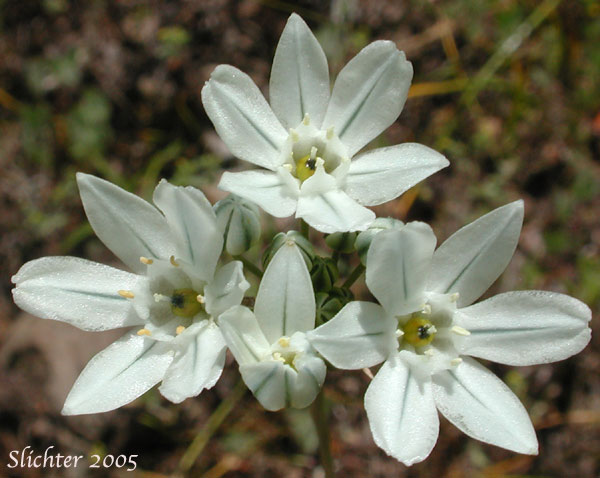
The photo above shows a close-up sideview of the flowers of hyacinth
cluster lily as seen from the southeastern slopes of Mt. Adams, Gifford Pinchot N.F.........June 2005.
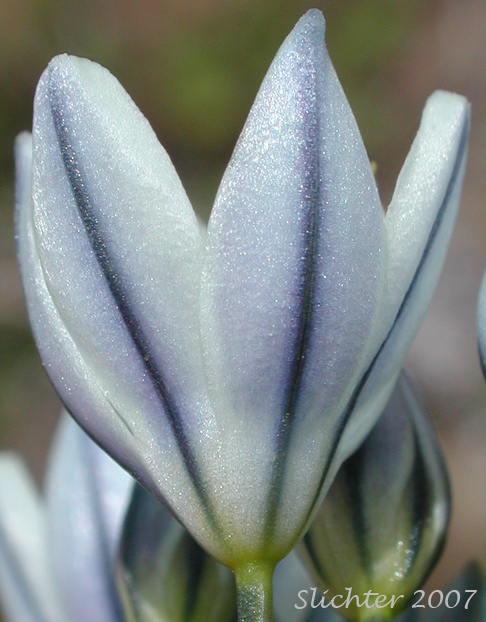 The photo at right shows a close-up of the flower of hyacinth cluster lily as seen on moist slopes about one mile north of the old ski area in the Simcoe Mts., several miles northeast of Satus Pass..........June 16, 2007. The outer surface of the tepals range from strongly blue-colored to more or less whiteish with a bluish or greenish central stripe. Click the photo to see an enlarged view.
The photo at right shows a close-up of the flower of hyacinth cluster lily as seen on moist slopes about one mile north of the old ski area in the Simcoe Mts., several miles northeast of Satus Pass..........June 16, 2007. The outer surface of the tepals range from strongly blue-colored to more or less whiteish with a bluish or greenish central stripe. Click the photo to see an enlarged view.
Characteristics:
Hyacinth cluster lily is an attractive wildflower with one to
two basal leaves and a single stem from 25-70 cm high. The leaves are flat but
keeled beneath and range from 3-10 mm wide and up to 40 cm long. The leaves
usually persist until flowering.
The many flowers form an umbel. Individual flowers are white or
occasionally light blue in color with a prominent green or blue midvein. The 6
tepals are broadly bell-shaped, ranging from 10-16 mm long. The lobes are 2-3
times longer than the tube and are broadly lanceolate to oblong-obovate. The lobes
are roughly the same size and shape and spread at about the same level. There
are 6 fertile stamens with the anthers each 1.5-2.5 mm long.
Habitat:
Hyacinth cluster lily may be found growing on grassy or open,
rocky flats and meadows from the lowlands to mid-elevation in the mountains.
Range:
Hyacinth cluster lily may be found from southern British Columbia
south to the west of the Cascades in Washington and Oregon to the Sierra Nevada
Mts. of California. It is also found east of the Cascades in the sagebrush desert
from Chelan County, WA south through central and eastern Oregon to northern
Nevada and east to Idaho.
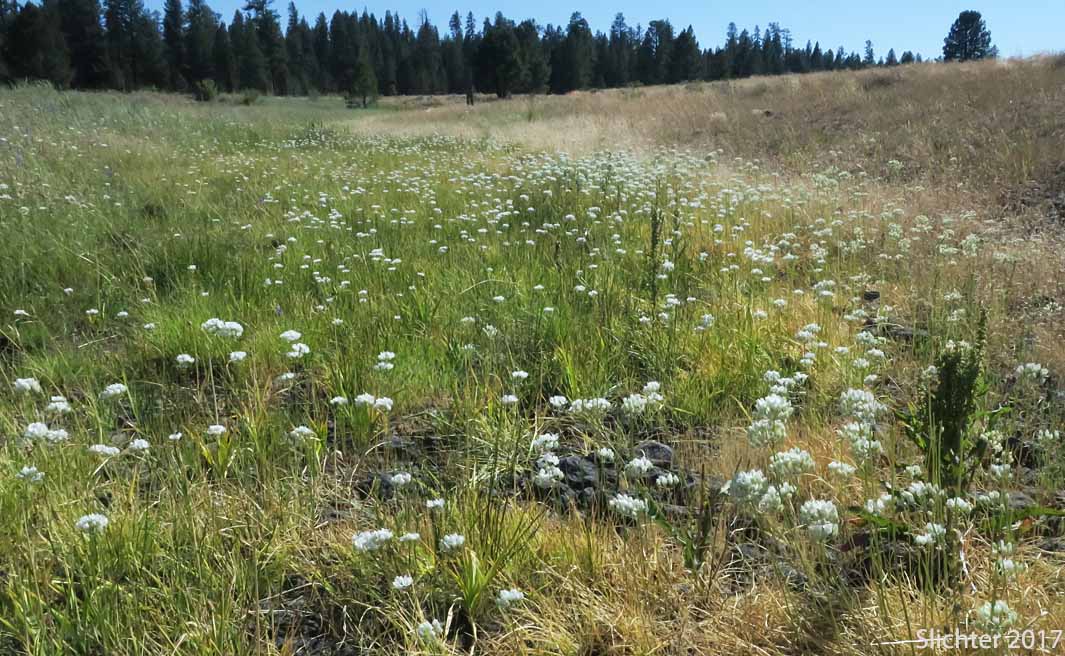
This photo shows the vernally moist meadow habitat of hyacinth cluster lily as seen near the junction of Forest Roads 42 and 4240 at the southeastern corner of Big Summit Prairie, Ochoco National Forest.........July 13, 2017.
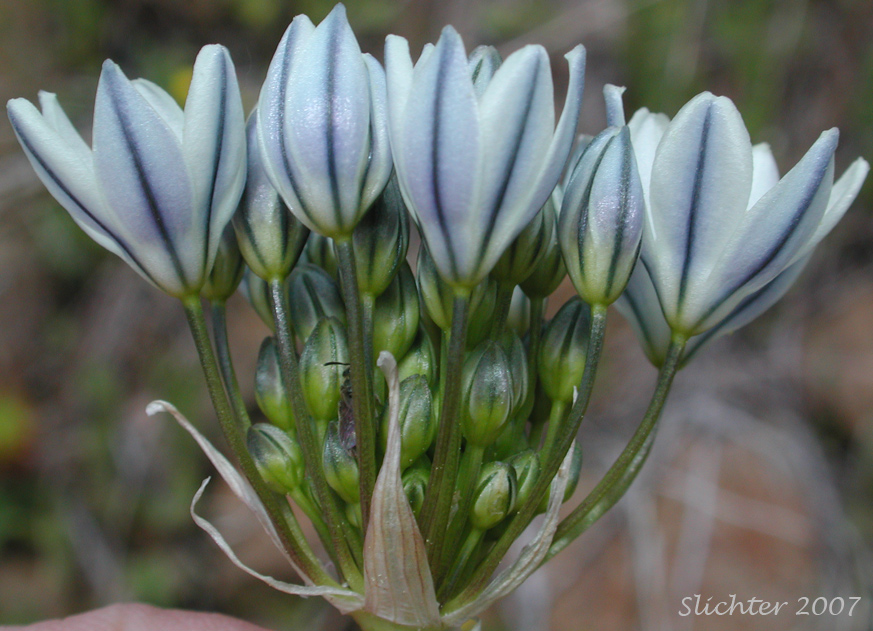 -
- 
The photo above shows a close-up sideview of the inflorescence of hyacinth cluster lily as seen on moist slopes about one mile north of the old ski area in the Simcoe Mts., several miles northeast of Satus Pass..........June 16, 2007. Note the greenish pistil and short style with 3 short stigma lobes. The filaments of the stamens are petaloid, although this is barely visible in these photos.
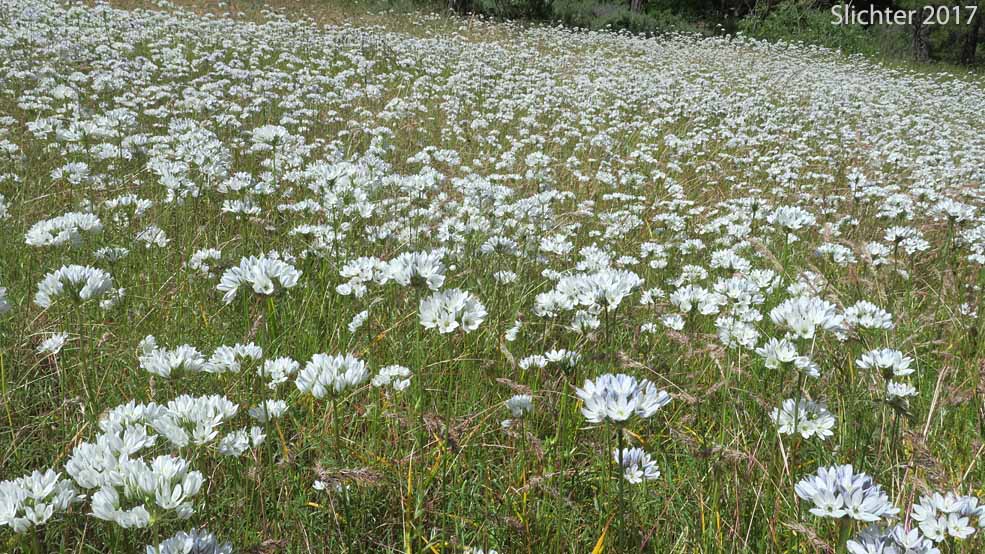 -
- 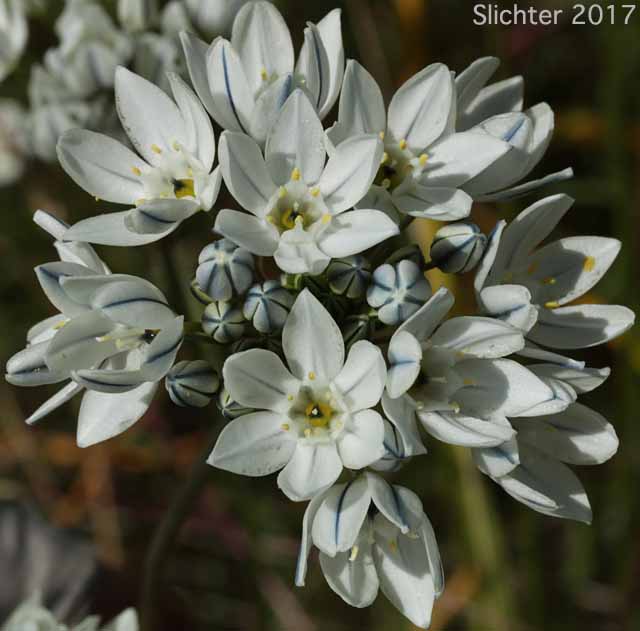
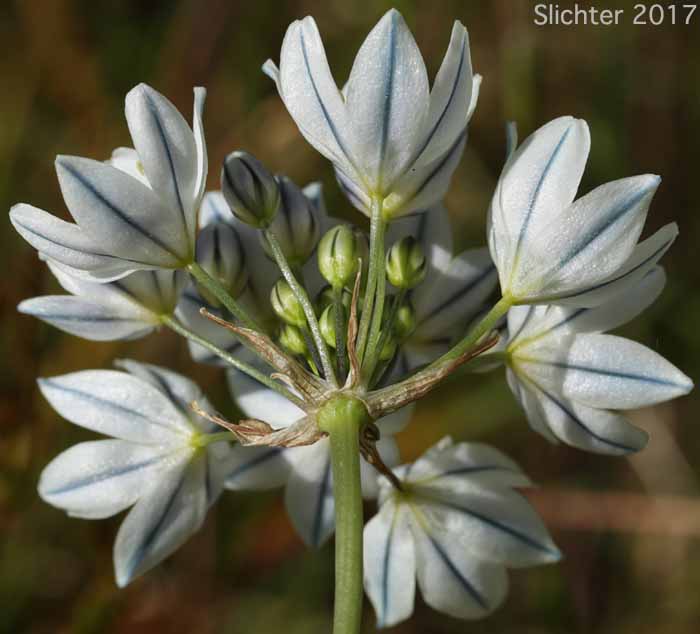 -
- 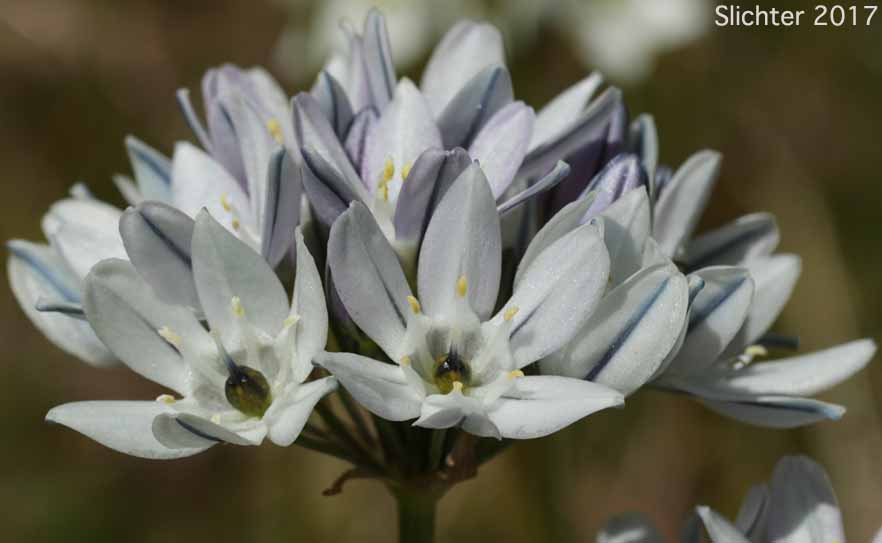
Hyacinth cluster lily blooming in vernally moist meadows along the main east-west access road through the Bickleton Ridge Unit of the Klickitat Wildlife Area........June 17, 2017.
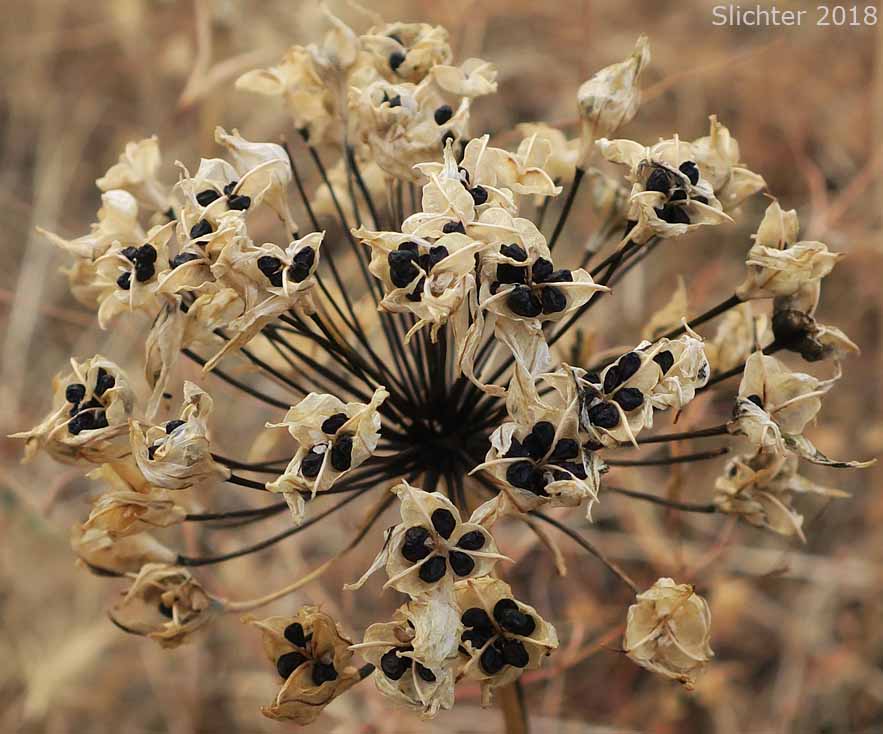
Hyacinth cluster lily going to seed as seen in vernally moist scablands at Brooks Memorial State Park.........October 10, 2018.
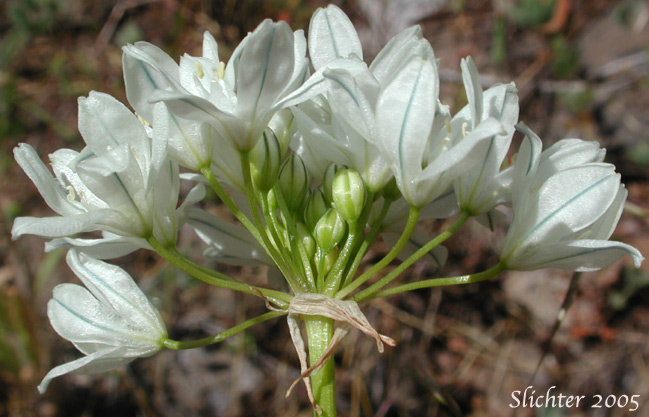
The photo above shows a close-up sideview of the umbel of hyacinth cluster lily as seen from the southeastern slopes of Mt. Adams, Gifford Pinchot N.F............June 2005.
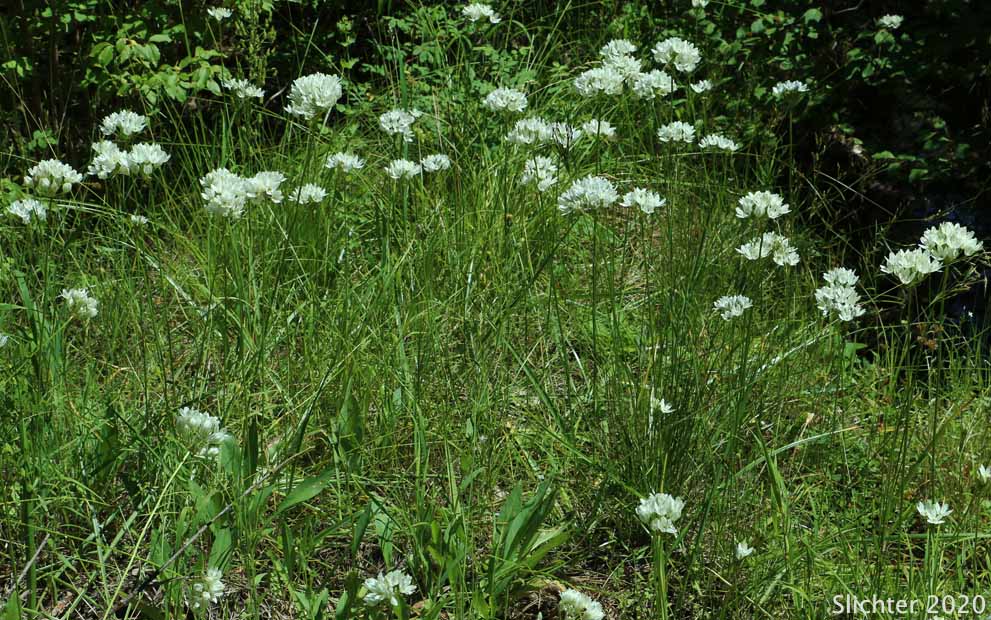 -
- 
Hyacinth cluster lilies observed at left along Box Canyon Road in a vernally moist drainage descending down to Rock Creek, Klickitat County, WA.....July 1, 2020. The photo at right shows the habitat of hyacinth cluster lilies as they bloom in a vernally moist meadows along Box Canyon Road about one mile west of Box Canyon, Simcoe Mountains Unit of the Klickitat Wildlife Area.....June 15, 2022.
Hyacinth cluster lily found southeast of Cottonwood
Creek in the Fremont N.F.........July 18, 1998.
Paul Slichter
 The photo at right shows a close-up of the flower of hyacinth cluster lily as seen on moist slopes about one mile north of the old ski area in the Simcoe Mts., several miles northeast of Satus Pass..........June 16, 2007. The outer surface of the tepals range from strongly blue-colored to more or less whiteish with a bluish or greenish central stripe. Click the photo to see an enlarged view.
The photo at right shows a close-up of the flower of hyacinth cluster lily as seen on moist slopes about one mile north of the old ski area in the Simcoe Mts., several miles northeast of Satus Pass..........June 16, 2007. The outer surface of the tepals range from strongly blue-colored to more or less whiteish with a bluish or greenish central stripe. Click the photo to see an enlarged view.